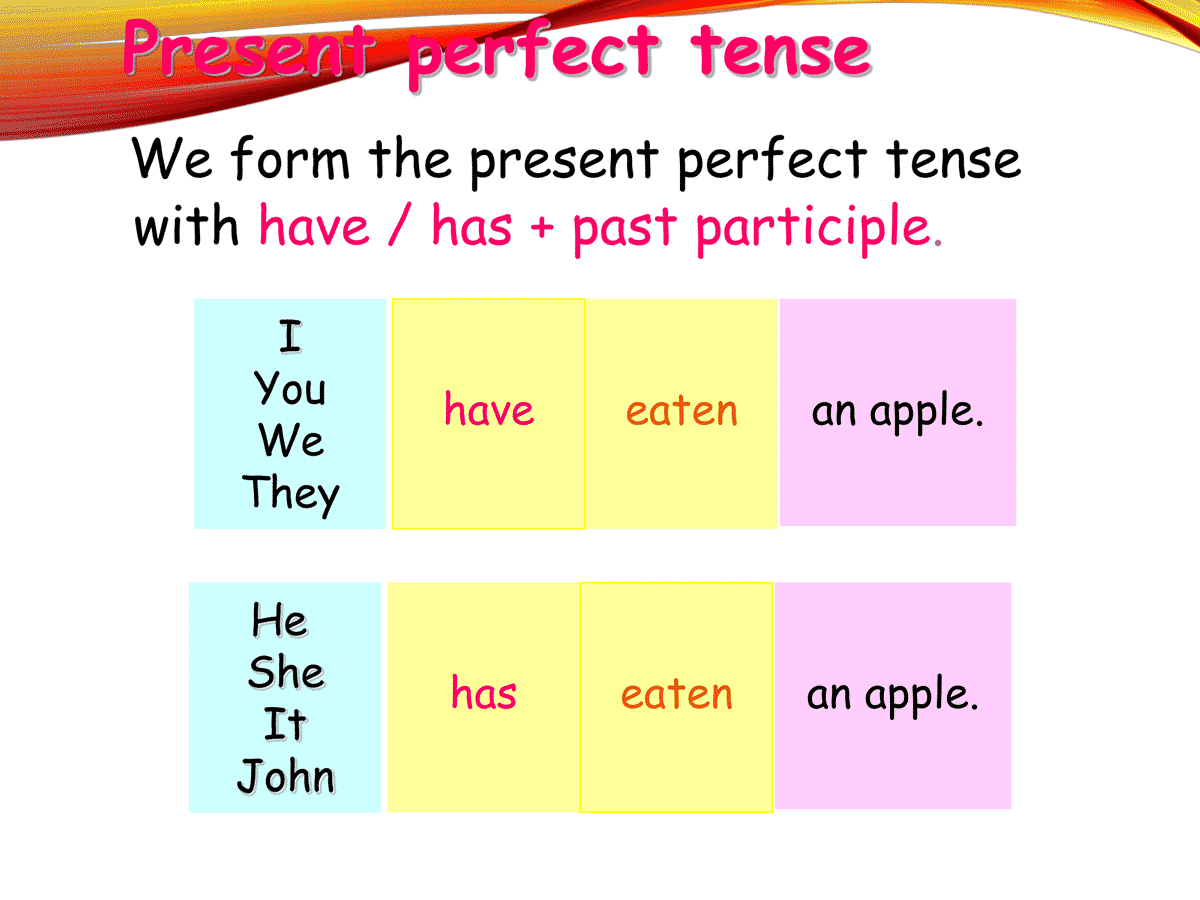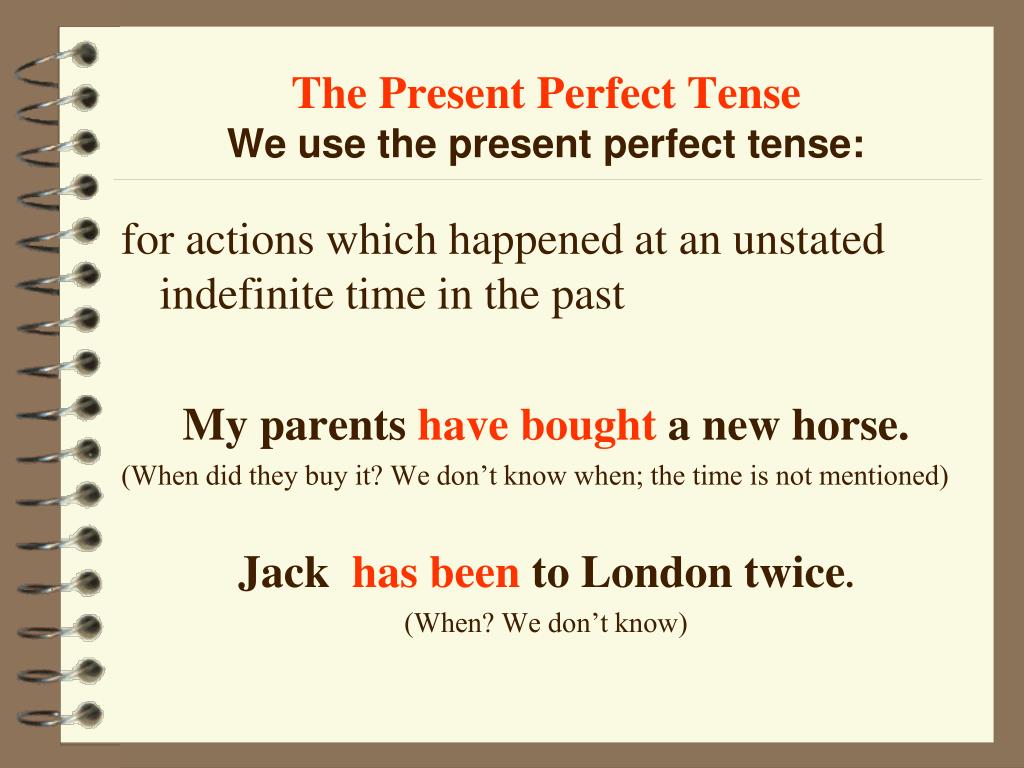Present Perfect Tense

The present perfect tense is a tense used in present to indicate the action that has taken place at some specific time. It uses auxiliary verb and past participle for the main verb i.e. verb + ed.
Thus, you will see that the construction of this verb tense is straightforward. Have or has is the first element which depends on the subject-verb is conjugated with. Similarly, the second element is the past participle of the very. It forms generally by adding –ed or –d to the root of the verb.

For instance, talked, leaned, wiped, mixed, and more. However, the English language does contain a few verbs that have irregular past participles. For instance, done, won, eaten, gone, thought, and more.

Present Perfect Sentences for Describing
We use present perfect tense to describe:
An action or situation which began in the past and is continuing to the present. I have lived in Mumbai since 1995. It means you are still living in Mumbai.
An action performed during a period that has not finished yet. He has been to the zoo thrice this month. It means the month is not over yet.
A repeated action in an unspecified period between the past and present. They have visited London multiple times.
An action that was completed in the very recent past. ‘Just’ is used to express it. We have just completed our assignment.
An action when the time does not carry much importance. She has read ‘Harry Potter’. Here, the result of her reading carries importance.

Examples of Present Perfect Tense
Unspecified Time Before Now
We make use of the present perfect tense to say that an action took place at an unspecified time before now. Thus, the exact time is not of that much importance. Do NOT use the present perfect with particular time expressions like yesterday, two years ago, last month, when I was a kid, when I lived in Gujarat, at that moment, that day, one day, etc. You can use the present perfect with unspecific expressions like ever, once, several times, never, already, many times, so far, yet, and more.
Examples –
- We have seen that video ten times.
- I think I have met her once before.
- There have been many wildfires on Amazon.
- Astronauts have traveled to the Moon.
- They have not traveled to Jupiter.
- Have you read the thesis yet?
- Nobody has ever visited that haunted house.
Rules for using the Present Perfect
We understand that the concept of ‘unspecified time’ can be very confusing to English learners. Thus, it will help in associating present perfect with the following topics:
Experience
We can make use of the present perfect for describing our experience. For instance, ‘I have the experience of…’ Similarly, this tense can also be used to say that you have never had a particular experience. We do not use the present perfect for describing a particular event.
Examples –
- I have been to New York.
- Through this statement, you are telling me that you have had the experience of visiting New York. It may be that you visited it once or multiple times.
- I have been to New York five times.
- The number of times can be added at the end of the sentence.
- I have never been to New York.
- Through this sentence, you will say that you have not had the experience of visiting New York.
- I think I have seen that video before.
- She has never traveled by car.
- Tina has studied four foreign languages.
Change Over Time
Present perfect is also used to denote the change that has occurred over a certain period of time.
Examples –
- You have grown since the last time I saw you.
- The school has become more interested in extra-curricular activities.
- French has become one of the most popular courses at the school since the Foreign Language program was established.
- My Telugu has significantly improved since I moved to Telangana.
Achievements
The use of the present perfect is also done to list the achievements of people and humanity. But, you cannot mention a particular time.
Examples –
- Man has walked on the Moon.
- Scientists have split the atom.
- Our daughter has learned how to dance.
- Doctors have cured many deadly diseases.
Uncompleted Action You are Expecting
We use the present perfect to tell about an action which we are expecting but has not happened yet. Using the present perfect will suggest that you are still waiting for the action to occur.
Examples –
- Rahul has not completed his project yet.
- Priya hasn’t mastered Bengali, but she can communicate.
- Pete has still not reached.
- The rain hasn’t stopped.
Multiple Actions at Different Times
The present perfect tense is also used to talk about multiple different actions that have happened in the past at different times. It suggests the process is not complete and there is a possibility of more actions.
Examples –
- The army has attacked the neighboring country two times.
- We have had two competitions and five events so far this year.
- I have had a lot of problems while teaching junior classes.
- He has talked to multiple doctors about her problem, but nobody can figure out the reason for her illness.